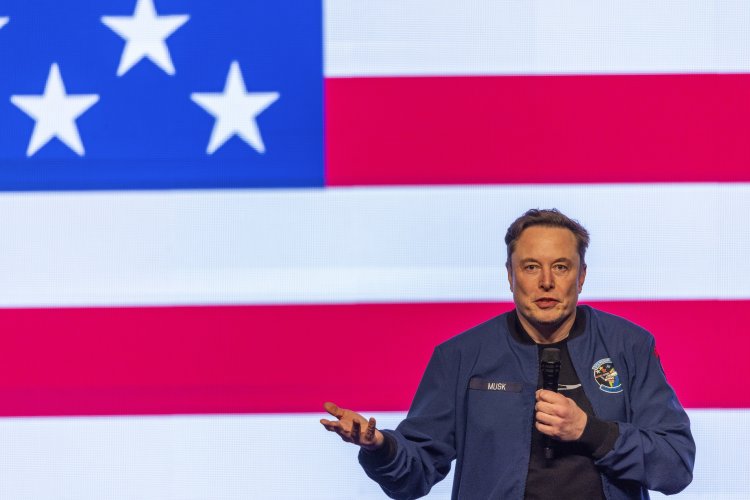Forget Wisconsin: The GOP’s Real Concern Should Be Over Florida's Results.
In an evaluation of the atmosphere following Musk's leadership of DOGE, compelling evidence surfaced in Florida indicating that the tech entrepreneur has become a political liability.

Now, according to PMG’s Rachael Bade, this partnership appears to be diminishing. In the upcoming weeks, Musk is expected to scale back his involvement in Washington. Trump has informed his inner circle and Cabinet members that both he and Musk have agreed on a transition, with Musk taking on a less controversial role and stepping back from his leadership of the DOGE initiative.
For Republicans, Musk’s exit comes as a relief. Recent outcomes signal that he has become a political liability. In a significant test of public sentiment following Musk's controversial tenure at DOGE, evidence has emerged regarding the political fallout from his involvement.
The repercussions were particularly evident not only in Wisconsin, where Democrats secured a contentious Supreme Court seat in a swing state—functioning as a litmus test for Musk—but also in Florida, where even the staunchest Republican districts showed signs of vulnerability due to Musk’s influence as the GOP heads into the 2026 midterm elections.
On Tuesday, two special House elections were held in Florida, both in typically secure Republican districts where Democrats usually stand little chance. It was anticipated that Democrats would exceed expectations—driven by grassroots anger toward Trump and the party’s historical strengths in special and off-year elections.
Indeed, Democratic candidates in both contests performed better than anticipated—significantly better than in 2024. Nonetheless, the GOP retained both seats. Still, the Republican victory in Florida’s 1st District, based in the Panhandle, concealed a concerning trend linked to Musk: a loss in Pensacola’s Escambia County.
Situated further from Miami than from Dallas, Escambia is the westernmost county in Florida. Its political landscape resembles more of the Deep South compared to South Florida. Though it is the least Republican of the four counties in the district, this fact belies its overall conservative leanings: Escambia, bordering Alabama, has not supported a Democratic presidential candidate since 1960 and voted for Barry Goldwater in 1964, George Wallace in 1968, and awarded Trump a nearly 20-point victory in 2024. The county also solidly supported former GOP Rep. Matt Gaetz even amidst scandal.
However, on Tuesday, Escambia County diverged from its typical voting patterns, narrowly favoring Democrat Gay Valimont over Republican Jimmy Patronis. In 2024, Valimont lost by 14 points in the same area.
Across the four counties in the 1st District, Valimont had previously lost by a staggering 32 points in 2024. Yet, that margin significantly narrowed on Tuesday, dropping to 15.
While it remains too early to confirm definitively, Musk’s Department of Government Efficiency initiative appears to have influenced these shifts. Florida’s 1st District has a higher number of federal workers than any other congressional district in the state, with many located in the Pensacola region—historically known as the Cradle of Naval Aviation, which is home to several major Navy installations.
The military presence is significant, with major employers such as the Navy Federal Credit Union, which serves personnel and their families, as well as Department of Defense civilian employees. Nearby Okaloosa County also hosts large military bases like Eglin Air Force Base and Hurlburt Field, while Santa Rosa County features communities catering to military families.
Additionally, the federal imprint is felt across the region, with lay-offs of park rangers at the Gulf Islands National Seashore already reported.
The special election outcomes indicate that voters may have imposed a “Musk tax” on the GOP. Although it didn’t suffice to flip a seat in a conservative Florida district, the results are concerning enough to warrant attention in other regions with significant military installations, such as Hampton Roads, Virginia, and the San Diego area, as well as areas with large federal worker populations.
Musk's declining popularity mirrors broader discontent: polls indicate that DOGE and related government initiatives rank among the least favored in Trump's policy agenda. For Republicans headed into next year’s elections, Musk’s departure is likely to be viewed as positive. However, the lingering question remains whether this shift comes too late for those battling in competitive districts.
Sophie Wagner for TROIB News












